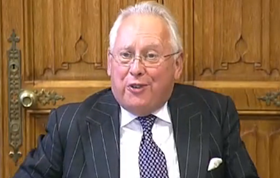The fragility of the criminal legal aid sector is placing people's human rights at risk which can no longer be ignored, MPs have said a report that paints a bleak picture.
The House of Commons justice select committee has today called for the government to commission an independent review - similar to a review conducted in Scotland - with the aim of devising a sustainable scheme. The review should begin no later than March 2019 and be completed within a year.
The committee said it was 'regrettable' that the Law Society needed to pursue grievances about the litigators' graduated fee scheme in the High Court. The government's £15m offer to resolve a dispute with the criminal bar over the advocates' graduated fee scheme is welcomed. However, the money does not resolve the 'underlying issues'.
The committee says the pressure placed on defence practitioners to fulfill their professional obligations by reviewing unused material without remuneration is unfair, unsustainable and likely to become increasingly prejudicial to the defendant.
Recommendations include considering restoring legal aid payments for defence practitioners to review unused material above a certain threshold as part of a wider criminal legal aid review. The AGFS should be reviewed annually by a panel which includes representatives from the criminal bar and solicitor firms. The committee suggests the panel's remit shoud include considering the inter-dependency between the advocates' and litigators' schemes, 'and the impact of changing the former on the operation of the latter'.
The government is also urged to conduct an urgent cross-departmental review of funding for all elements of the criminal justice system, in time to influence next year's 2019 spending review.

Conservative MP Bob Neill, committee chair, said: 'In criminal cases, there is a common law right to legal advice, and a right to legal representation under the European Convention on Human Rights. There is compelling evidence of the fragility of the criminal bar and criminal defence solicitors' firms, which places these rights at risk – a risk which can no longer be ignored.'
The Law Society welcomed the committee's call for an independent review on the sustainability of the legal aid system, which the Society's head of justice, Richard Miller, recommended when he gave evidence to the committee earlier this year.
Society president Christina Blacklaws said: 'Criminal duty solicitors offer a vital public service, but cuts and the fact they have had no pay rises for more 20 years are driving more and more of them away from criminal defence work. Many lawyers no longer see a viable career doing criminal legal aid work, and it is difficult to attract newer members of the profession.'
Andrew Walker QC, chair of the Bar Council, said: 'At a time when public servants across government are finally seeing light at the end of the tunnel of austerity, there is no justification for excluding the dedicated barristers and solicitors whose daily struggles keep the criminal justice system going.'
Angela Rafferty QC, Criminal Bar Association chair, said there was now an opportunity to put things rights. 'The alternative is further dispute and disruption which cannot be in anyone's interests,' she added.



























18 Readers' comments